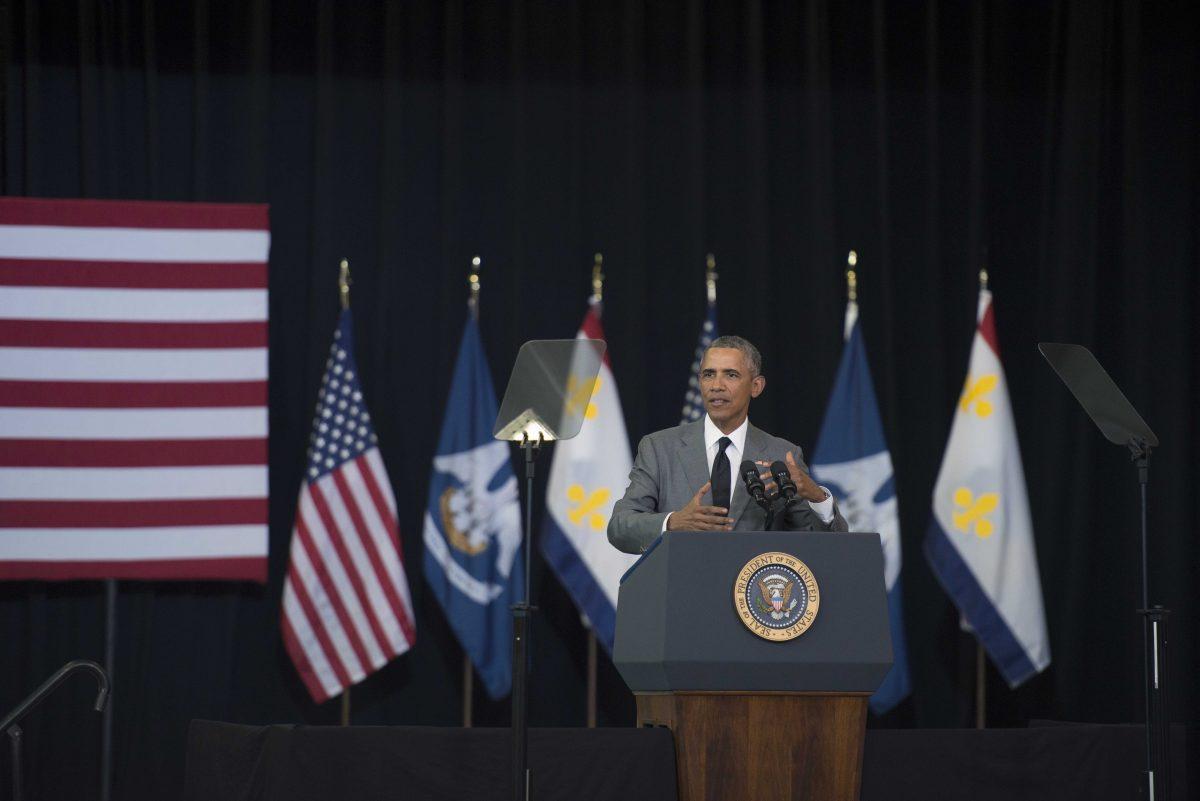The only objective President Barack Obama’s Iran deal offers is the complete instability of the entire Middle East — and the world.
The president made his loyalties to Middle East extremist groups well-known when he supported the Muslim Brotherhood and the Syrian rebels during the Arab Spring.
Now, he wants to allow nuclear technology to fall into radical hands. This July, six world powers allowed Iran to begin to develop its nuclear program peacefully.
The White House agreed to this proposal, even though Iran’s supreme leader Ali Khamenei called for “death to America” to crowds who chanted the phrase in response. Iran also is a known supporter of terrorist organizations. Is this really a country we can trust?
Secretary of State John Kerry’s response to Iranian officials was that the chants were unhelpful to negotiations and “pretty stupid.” As comforting as Kerry’s response was to those agreeing to the deal, it shows just how seriously the Obama administration takes Iran’s threats — not at all.
The Obama administration claims the deal will prevent Iran from creating nuclear weapons for 15 to 25 years. Once again, the president is telling Americans only a partial truth.
The deal is based off the assumption that the International Atomic Energy Agency will have complete and unrestricted access to known Iranian nuclear sites. If there is a suspicious location, Iran must give access to IAEA inspectors within 24 hours. Sounds good, right? Wrong.
The IAEA inspectors are not allowed to continuously monitor the uranium mining facilities, so what happens if they mine it and ship it to a secret facility? It can take up to 24 days to give the IAEA access to these suspicious locations, and only if it has evidence of the shady activity.
In exchange for this deal, Iran will have up to $50 billion worth of sanctions lifted. The sanctions are important in prolonging the development of nuclear technology, but by lifting them, Iran can secretly use the funds to develop weapons faster.
There is no guarantee Iran won’t build nuclear weapons. According to the U.S. Institute of Peace, on its current path, Iran will have ICBMs by 2020 that are capable of hitting the U.S. and western Europe.
Should we really be giving Iran $50 billion of business back and letting it hide nuclear facilities and mine uranium unmonitored?
This deal spells only one thing: disaster.
Both Republicans and Democrats in Congress know this as well. U.S. Sen. Ben Cardin of Maryland, the top Democrat on the Foreign Relations Committee, wrote, “After 10 to 15 years, it would leave Iran with the option to produce enough enriched fuel for a nuclear weapon in a short time.”
The president hopes to avoid embarrassment by forcing this deal through Congress. Obama already secured the 41 votes necessary to veto a disapproval resolution from congressional Republicans, yet he is looking for enough commitment to filibuster in the senate.
Unfortunately, if more Democrats don’t oppose the veto and filibuster, the deal will go through. According to an August poll from CNN/ORC, 56 percent of Americans believe Congress should reject this deal, while only 41 percent believe they should approve it.
The poll also found 60 percent of Americans disapprove of the way Obama handles relations with Iran. Obama’s disregard for the American public’s concerns shows his blatant disregard for popular opinion and increasingly authoritarian executive power.
A nuclear Iran would shift the balance of power in the Middle East. Obama agreed to give $1 billion in military assets to Saudi Arabia, but this wouldn’t be necessary if the deal was avoided.
The peace in the Middle East already is disturbed by the Islamic State, Palestine and the Arab Spring. Reducing pressure on Iran will further dip the region and the world into chaos, should it develop nuclear weapons.
Garrett Marcel is a 21-year-old petroleum engineering senior from Houma, Louisiana. You can reach him on Twitter @Gret419.
OPINION: Obama’s presidency – instability in the Middle East
September 7, 2015
President Barack Obama spoke of disaster and resilience on Thursday, Aug. 27, 2015 in The Lower 9th Ward Senior Center Andrew P. Sanchez & Copelyn-Bird Center.
More to Discover








